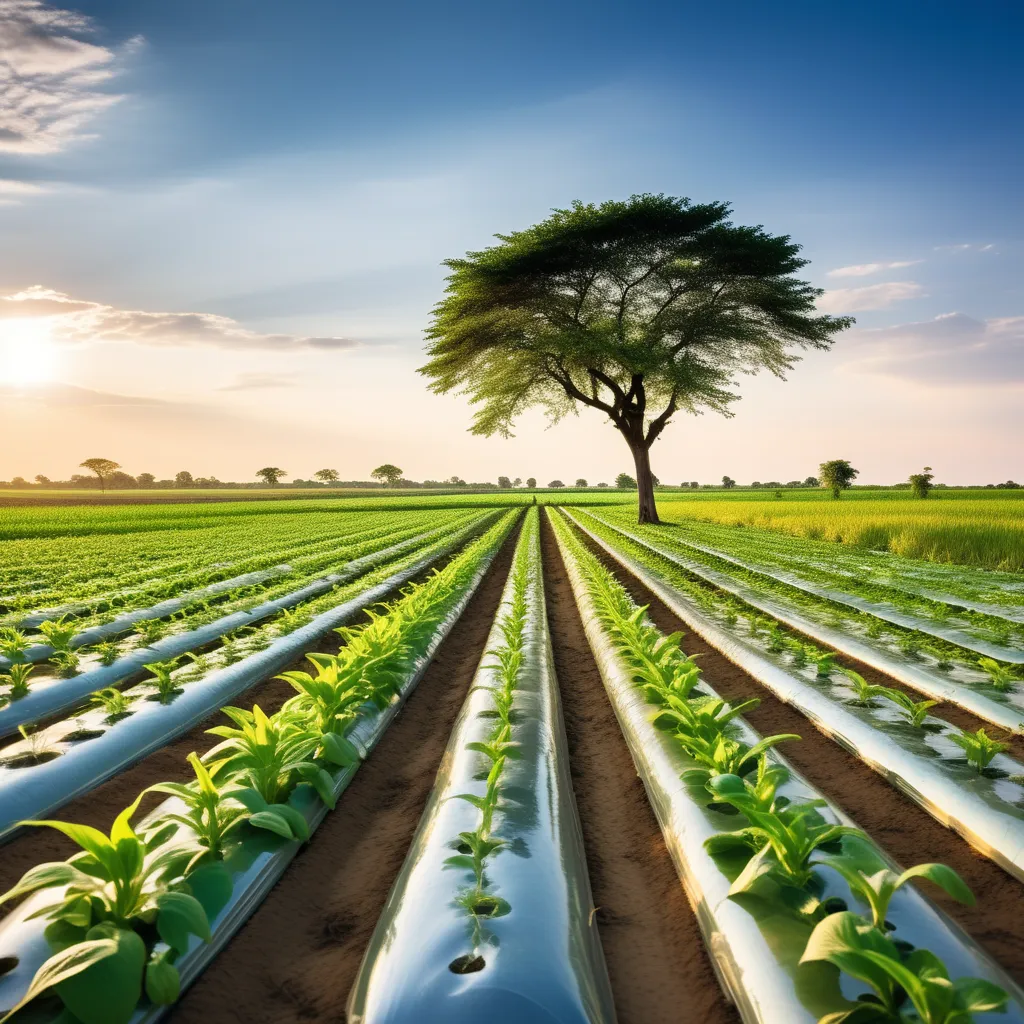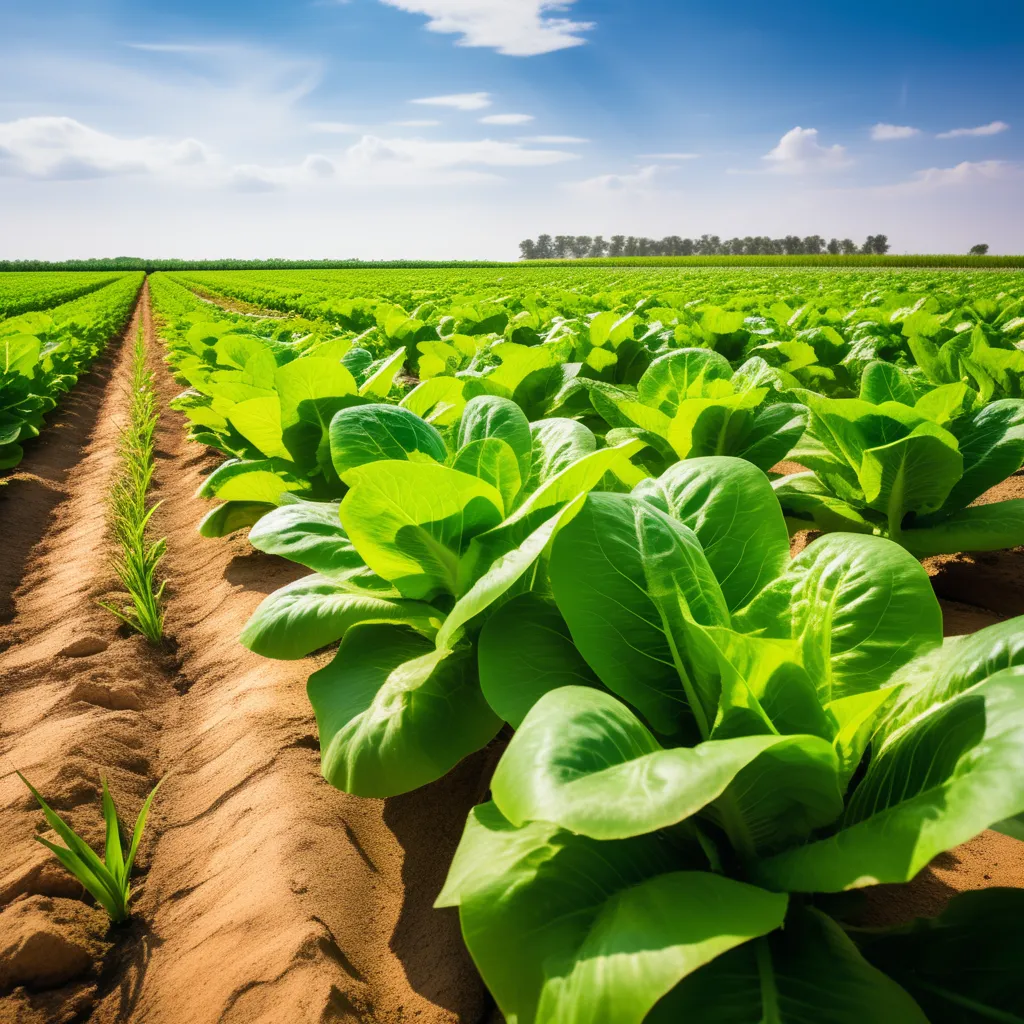Breakthrough in Sustainable Agriculture: Drought-Resistant Crops
In a world where the demand for food is constantly growing, one of the most significant challenges we face is the impact of climate change on agriculture. With rising temperatures and unpredictable weather patterns, it's becoming increasingly challenging to ensure food security for a growing global population. However, there's a ray of hope on the horizon: breakthroughs in sustainable agriculture, particularly the development of drought-resistant crops. Let's delve into this exciting development, and I'll share a personal story that highlights the importance of resilient crops.

The Impact of Climate Change on Agriculture
Climate change has brought about a range of issues affecting agriculture, including extreme weather events, shifting growing seasons, and, most notably, prolonged droughts. These dry spells can devastate crops, leading to reduced yields, food shortages, and economic losses for farmers.
Personal Insight: Lessons from My Hometown
Growing up in a small farming community, I witnessed firsthand the struggles of local farmers during extended droughts. What used to be bountiful harvests turned into meager yields, impacting not only the livelihoods of farmers but also the availability and affordability of food for our community.
The Quest for Drought-Resistant Crops
Recognizing the urgency of the situation, scientists and agricultural experts have been working tirelessly to develop crops that can thrive in water-scarce conditions. These drought-resistant or drought-tolerant crops have the potential to revolutionize agriculture and make it more sustainable in the face of climate change.
1. Genetic Modifications
One approach to creating drought-resistant crops involves genetic modifications. Scientists can identify and introduce specific genes that enable plants to better withstand water stress. These modifications often involve genes that improve water retention, increase root depth, or enhance the plant's ability to regulate water usage.
2. Traditional Breeding Techniques
Another avenue of research focuses on traditional breeding techniques. By selectively crossbreeding plants with natural drought resistance, scientists can develop new crop varieties that inherit these valuable traits.
Personal Experience: A Resilient Tomato Plant
Last summer, I decided to try my hand at gardening. Among the various vegetables and herbs I planted, there was a tomato plant that seemed to thrive regardless of the weather. During a particularly hot and dry spell, while other plants withered, my resilient tomato plant continued to produce an abundance of fruit. It was a small-scale demonstration of how resilient crops can make a significant difference, even in a backyard garden.
The Potential Benefits of Drought-Resistant Crops
The development and widespread adoption of drought-resistant crops offer several potential benefits:
3. Increased Food Security
Drought-resistant crops are less vulnerable to the adverse effects of water scarcity, which means more reliable crop yields. This can enhance food security and reduce the risk of hunger in vulnerable regions.
4. Sustainable Farming Practices
Reducing water usage in agriculture is essential for preserving this precious resource. Drought-resistant crops typically require less irrigation, promoting more sustainable farming practices.
5. Economic Resilience for Farmers
Farmers who cultivate drought-resistant crops may experience fewer crop losses, leading to increased economic stability and reduced financial risk.
Challenges and Considerations
While the promise of drought-resistant crops is exciting, there are challenges and considerations to address. These include ensuring the safety of genetically modified crops, preserving biodiversity, and making these innovations accessible to small-scale farmers in developing countries.
The Road Ahead
As we look to the future of agriculture, the development and deployment of drought-resistant crops hold tremendous potential for mitigating the impacts of climate change on our food supply. However, it's essential that we proceed with caution, considering the environmental and ethical implications of these innovations.
Ultimately, the quest for sustainable agriculture is a collective effort that involves scientists, farmers, policymakers, and consumers. By supporting research, adopting more sustainable farming practices, and making informed choices as consumers, we can all contribute to a more resilient and food-secure future.

In conclusion, the breakthroughs in sustainable agriculture, particularly in the development of drought-resistant crops, offer a glimmer of hope in the face of climate change's challenges. Just as my resilient tomato plant thrived despite adverse conditions, these crops have the potential to thrive and feed our growing world, even in the harshest of environments.

No comments:
Post a Comment